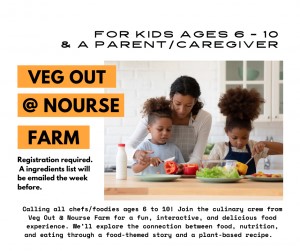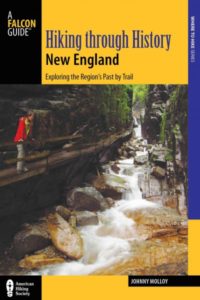
To Be Human, Part II
In a past newsletter, I posed three questions that I believe we should periodically ask ourselves over the course of our lives.
This issue continues the list of activities I posted in my last issue that help answer the second question: How can we fully experience what it means to be human?
- Learn to play a musical instrument. Okay, it turns out that Neanderthals also played musical instruments 60,000 years ago, but human beings have been playing music for most if not all of our history as well. Musical instruments often have steep learning curves, especially at the beginning, but once you get over the first hump and start producing more pleasant sounds, that achievement and each subsequent one gives you a chance to marvel at our human ability to learn and process something new. And if you can’t play an instrument, then sing. If you can’t sing, then dance (which also involves music and the body). And if you can’t dance, well, then, I can’t help you. Okay, then at least LISTEN to music and clap along.
Suggested Reading: How Music Works by David Byrne. The leader of the Talking Heads is not only a musician. He thinks deeply about music and life. This book will give you a whole new perspective on music, its history, and its important role in societies.
- Learn to cook. We all have to eat, so why not work on perfecting what’s on your plate before you put in your mouth? We cook our food, as opposed to eating it raw, because doing so allows us to consume more easily the number of calories we need to feed our big, energy-consuming brains. And if you cook the food you have grown in your garden (see the first part of this list), then you are really getting to know what it is to be human.
Suggested Reading: Salt, Fat, Acid, Heat: Mastering the Elements of Good Cooking by Samin Nosrat. Nosrat argues that by mastering these four elements you can elevate your cooking and even confidently walk into a grocery store without a recipe and cook up something delicious. It sure worked for me!
- Take a hike and connect with nature. Actually, there are lots of ways to convene with nature besides hiking. But as you walk through the woods or look up in the sky at night, gather your questions and then turn to science to see how our collective wisdom and intellectual perseverance has made it possible to provide answers. After all, science is ultimately our most accomplished method for solving deep questions about the world around us.
Suggested Reading: The Songs of Trees: Stories from Nature’s Great Connectors by David George Haskell. Haskell repeatedly visited a dozen trees around the world to examine how they are connected to their environment, even when that environment is dominated by people.
- Engage in politics. Human beings are social animals, and we hold the ability to organize and change how we want to live together by instituting laws and social rules. Luckily, we in live in a democracy here in Westborough, so if we believe that the society in which we are living is not perfect, we can at least have our say about how it should be designed and try to persuade others to make change along with us. Such a luxury rarely comes around during the course of world history, so take advantage of our current system of government and get involved.
Suggested Reading: The Narrow Corridor: States, Societies, and the Fate of Liberty by Daron Acemoglu and James A. Robinson. The two authors delve into the nature of liberty and explain why so few people have ever experienced it over the course of history.
- Teach. We as human beings have created civilization, and enjoy the physical comforts that we do, by effectively passing along the knowledge we accumulate to others. Beyond not having to start from scratch each time, the beneficiaries of our knowledge can then build upon what we have already learned and achieve even greater heights. You don’t have to become a formal teacher, but you can become more mindful about identifying your skills and passing them along to someone else. Such knowledge transfer can happen in the family, at work, among friends, in formal settings—practically anywhere. Be generous with your knowledge, because others were necessarily generous in sharing theirs with you.
Suggested Reading: The River of Consciousness by Oliver Sacks. In the chapter, “The Creative Self,” Sacks counterintuitively focuses on the value that imitation and mimicry essentially plays for creative people. Even more, the book itself is a self-reflection on Sack’s own reliance on, and dialogue with, his scientific and creative heroes from the past.
That’s my list. I admit, it’s by no means exhaustive. How did I come up with the items on it? Well, one of the ways was by strolling up and down the book aisles of the Westborough Public Library looking for human-based topics and activities. (By the way, did you know that the library recently reorganized its nonfiction section to make it easier to browse by subject? Stop by and check it out!) The lesson here is that libraries partly exist to help us in our quest to engage in activities that express our humanness. Museums are also great places to explore and experience our humanness.
Each activity that I list above and in my last newsletter offers many ways to approach and practice our humanness. We can plant various foods in our garden and cook all kinds of dishes and cuisines; practice religion and spirituality in lots of different ways; exercise our bodies through a variety of movements; and adopt different political models for organizing our societies. When these forms of human activity begin to form distinct patterns within a specific group of people, a culture emerges. Cultures, then, are different ways to express and practice our humanness, which is why I love exploring and learning about them. When we are attuned to the varieties of cultures in the world, we are better able to see the endless possibilities for fully feeling and experiencing what it means to be human.
Did I miss anything on my list? Share it in the comment section.
–Anthony Vaver, Local History Librarian
Finally, we will tackle my third and final question in the next issue: What is the meaning of life?
* * *
In my last newsletter I showcased books in the Westborough Center Circulating Collection about the stone walls of New England. Here are a couple books to help you identify hiking trails where you may come across those stone walls (not that you need to look hard) and other historical features of our area of the world.
- Hiking through History New England: Exploring the Region’s Past by Trail by Johnny Molloy.
- AMC’s Best Day Hikes in Central Massachusetts: Four-Season Guide to 50 of the Best Trails, from the Pioneer Valley to the Worcester Hills by John S. Burk.
* * *

Calling all chefs/foodies ages 6 to 10 & a parent/caregiver: Join our town’s historic farm for Veg Out @ Nourse Farm [Online Program], THURSDAY, APRIL 22 or FRIDAY, APRIL 23 , 3:30—4:30 PM.
The culinary crew from Veg Out @ Nourse Farm is offering a fun, interactive, and delicious food experience. They’ll explore the connection between food, nutrition, and eating through a food-themed story and a plant-based recipe.
Registration required (Thursday registration / Friday registration). An ingredients list will be emailed the week before. The program will be the same on both days, so please only sign up for one of the two sessions.
* * *
Did you enjoy reading this Westborough Local History Pastimes newsletter? Then subscribe by e-mail and have the newsletter and other notices from the Westborough Center for History and Culture at the Westborough Public Library delivered directly to your e-mail inbox: https://www.westboroughcenter.org/subscribe-to-updates/.

Dear Anthony: How seasonally appropriate: another home run. Great work. Gerry
Thanks, Gerry!
Dear Anthony,
I cannot think of anything you forgot in this week’s discussion of what it means to be human, but I really enjoyed being reminded to consider all those aspects of our human nature as well as the resources for further exploration.
Thank you!
I agree. That’s why I always enjoy browsing the stacks at the library. I can always find something new and interesting to learn about!